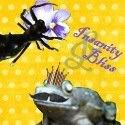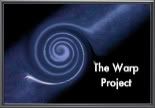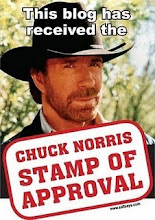 It turns out, I spend a lot of time thinking about failure. Not the glory of it, as the myth of Thomas Edison would have us focus on. Not that Thomas Edison himself is a myth. But the story told about him. That, would seem, in a sense, to be one. You know how it goes: he tried 40-times, maybe more, to make a light bulb, determined he could create a soft glow of light from a little thread. He failed again, and again, but just kept trying, each failure simply part of his scientific process of reaching out to grasp greater knowledge and success. I suppose we can describe failure in such terms. But it is not the sort that interests me. Notice, this version of it really sounds a lot more about how to understand success.
It turns out, I spend a lot of time thinking about failure. Not the glory of it, as the myth of Thomas Edison would have us focus on. Not that Thomas Edison himself is a myth. But the story told about him. That, would seem, in a sense, to be one. You know how it goes: he tried 40-times, maybe more, to make a light bulb, determined he could create a soft glow of light from a little thread. He failed again, and again, but just kept trying, each failure simply part of his scientific process of reaching out to grasp greater knowledge and success. I suppose we can describe failure in such terms. But it is not the sort that interests me. Notice, this version of it really sounds a lot more about how to understand success.Freud, I grant, is much disputed now. There are all kinds of reasons we're supposed to disregard him. His methodologies were unscientific. He flat out made things up. He didn't empirically test his theories. He was sexist. Etcetera. Perhaps, ironically, I've inadvertently brought in a different image of failure by bringing up Freud. This was not, however, my intent. My reason for bringing up Freud was a different one. Before making that reason clear, let me say that even if Freud's ideas would seem to be scientifically invalid, many of them can still be drawn out as metaphor or analogy for understanding ourselves. That is, some of Freud's ideas can serve as a useful story for making sense of our lives, a kind of picture book interpretation of what we do.
Freud described the formation of the ego, which we could understand as a central aspect of how we consciously understand ourselves, as occurring through a series of painful events. That is, we don't come in with our ego already intact, it develops over the course of our lives, perhaps, most especially, in childhood. The process, he said, occurs as we realize that something, or someone, that we had thought to be part of us, or easily attainable, is discovered to be separate from us. To put it a little too simply, we suddenly realize we can't have something or someone we want. In experiencing this thing or person as beyond us, a boundary is instituted in our psyche, a boundary that outlines the limits of who we are. We come to understand that what we wanted is not part of ourselves, but is, instead, part of the world outside of us. Over and over again, over time, these limits are further claimed, tracing the bounds of our ego, setting up how we understand ourselves, and also how we make sense of the world.
In this way, Freud was describing how we develop as individuals through the realization of our own limits. But further, how those limits are realized through our own failure to claim, possess, or garner something, or someone, that we want but that turns out to be beyond what we can reach, that is, beyond ourselves.
From this perspective, love, it would seem, would be an ultimate dance around the setting and testing of such limits. In our desire to be with another, we strive to reach, to make contact with the loved one, to reach past the limits of ourselves to understand the other, and insofar as we are able to, we seem in such moments to overcome the boundaries of ourselves. But, healthy relationships, at the same time, cannot operate solely in such unified closeness, even if it achieves that at times, and instead, two people will re-separate and return to the practice of their more individual lives. The result of such a process, though, would seem to be, still, a transformation---a greater intimacy both with ones own limits, with the loved one's, and with the mutability of such boundaries. This dance of closeness and return-to-individuality, too then, would seem to enact over and over again both the absolution and the re-instigation of the limits of the self. But also, participating in such a process also means facing the ultimate risk of the return of our own limits in the loss of the loved one that we had crossed our own boundaries with.
Difficult work, or projects that push us to work harder than we know we can, seem too another example of boundary transformation. We could talk of law school, or of writing a novel, or even of marriage in such ways. In any of these three examples, we begin the project, or make the commitment, without actually being able to predict how what we have committed ourselves to will turn out. Some of us may be familiar with the appearance of any of these three examples from those around us pursuing them before. And, yet, still, when we begin ourselves, the commitment will be our own, and we will have to find our own way of reaching that goal. Further, for those of us that don't want to live out our parents' relationships, for example, we have the harder task of defining our own process without the example of those that have done it already as a guide. When we commit to spending our lives with someone, we do not actually know what such life together will bring. When we begin law school, we have not yet actually experienced the precise academic rigor, or detail that exact program will demand.
In striving to achieve a goal we do not yet know we can reach, we face the risk of failure in order to gain the chance to succeed. So, in pursuing difficult projects, our path towards our goal arises in a paradox of simultaneously committing ourselves both to the possibility of failure, and of reaching our success. We determinedly strive forward to a result we cannot even accurately predict, or predictably reach. That is, we pursue our end, even without knowing how the goal will appear when we get there, or if we will succeed in reaching it. We cannot know in advance that we will succeed, and yet we try anyway. We have to negotiate the unpredictable path towards our pursuit as we go. And so, in traveling along what we cannot predict, we discover ourselves anew. We seek to determine if we possess within us the end-point of our project, the expression of our commitment, or if a limitation, an exclusion---the exclusion of our success---will be drawn within us. If we will live our lives with the person we have married, or get divorced. If we will finish law school and find our work, or flunk out.
We are defined as individuals, then, by the extent of our willingness to pursue paths filled with the possibility of failure. Thomas Edison does appear as a useful example here. He is known for his possession of the concept "light bulb." He succeeded in making it known to himself. He succeeded through his willingness to chase failure again and again in the race towards his goal.
My difficulty with the Edison story is simply that it focuses too readily on the triumph, without enough regard for the pain of it. Freud's story tells us that the realization of our limits is an incredibly painful process. Experiencing that something is not contained within us, that we do not possess, or cannot have, that which we want, or cannot be with the person we want to love---these are limits that are realized, Freud says, through an experience of painful loss. This loss is a loss of what we had taken to be ourselves. In other words, when we fail at something, we are not merely not reaching a goal, we are losing part of who we had taken ourselves to be. We are being forced into a new shape of a person. This process is what he calls melancholy. The melancholic person is one that dwells too heavily in the morose beast of his or her boundaries; that defines themselves by what they cannot do, or do not have. We all exist with such internalized limits, but whether we define our potential on them centrally or not distinguishes us from Freud's melancholic.
Why do I write about this now? I am at a loss for words. To guess, I suppose it is because I constantly do not know what to do, continually ask myself what is right, if what I have done has worked, or not. And in facing these questions I rarely know. In the midst of writing this, I do not know. I cannot say if I have even written anything clear. And, yet, in the daily reality of my life, I must persist anyway, even without knowing if what I do will succeed, or what the result of it will be; or, even after finishing something, if I succeeded in my goal. I confess that I am crippled by the results of too sorry an awareness of this lack of knowledge sometimes, and then, I wish to just take a break and sleep.
But, reflecting on it now, it would seem to me that it is in this site of not knowing, of seeing ones limit honestly, and having to continue anyway, that is our access to creativity--the creative negotiation of what we do not know how to do, or do not believe we can do, with what we simply must do. I suppose I spend so much time thinking about failure, because along with the brutality of it, what I am trying to discover is that breathy, sanguine, passionate beast that couples it--creativity. It would seem that failure and creativity have their own love dance, reaching beyond the limits of each other to define themselves anew. Perhaps in understanding these two as intertwined together we can enact a life lived dancing in our limits, determined to pursue a passionate agony of not knowing how and doing it anyway.













"The melancholic person is one that dwells too heavily in the morose beast of his or her boundaries; that defines themselves by what they cannot do..."
ReplyDeleteYou know. Those words ring true, and bring back of a fond memory of a departing friend and a brief speech I gave in her honour. I remember telling of her and how she reminded me of how our capacities may well be limitless... E. Forever.
interesting post, which rings distinctly of the funk. a few reflections, beginning at the end: failure and creativity strike an eye-catching pair. in the constant advance and retreat of our energies towards and away from others and projects, the only thing that does not seem possible is stagnation. i think that stagnation is the killer of creativity. if failure prevents stagnation and encourages greater effort, then i can see well how it could be the genesis of creativity. if necessity is the mother of invention, then perhaps strife is the father.
ReplyDeleteon the topic of failure and boundaries, the line "Difficult work, or projects that push us to work harder than we know we can, seem too another example of boundary transformation" especially caught me - the 'harder than we know we can' part most notably. we never know how hard we can work until we're working harder than we ever have before. it is a boundary transformation, and one which pushes our inner limit outward farther. our own boundaries are not brick walls; they're bubble-gum, and we can stretch them or break them and re-shape them if we have the will. we commit to something, and we do our damnedest.
but the lingering question: what is the measure of success? i get caught between individualism, cosmopolitanism, and nihilism. all three give different verdicts of any given act which are true simultaneously, depending on the level of analysis. what matters it seems is that the boundaries were shifted in some way. success or failure can be measured in terms of change. if failure causes change it could not really be considered failure as such, only failure to bring about one specific desired result. fortunately for us, it's very difficult to exist in the world without effecting change. so we write things down and maybe they seem fruitless or pointless (the nihilist in me nods her head), but actually if it has caused us to challenge ourselves then we've done something worthwhile. we've stretched our own boundaries wider.
fortunately as well, no one knows what the body can do, and that goes equally for the will, and the mind, and the force within us.